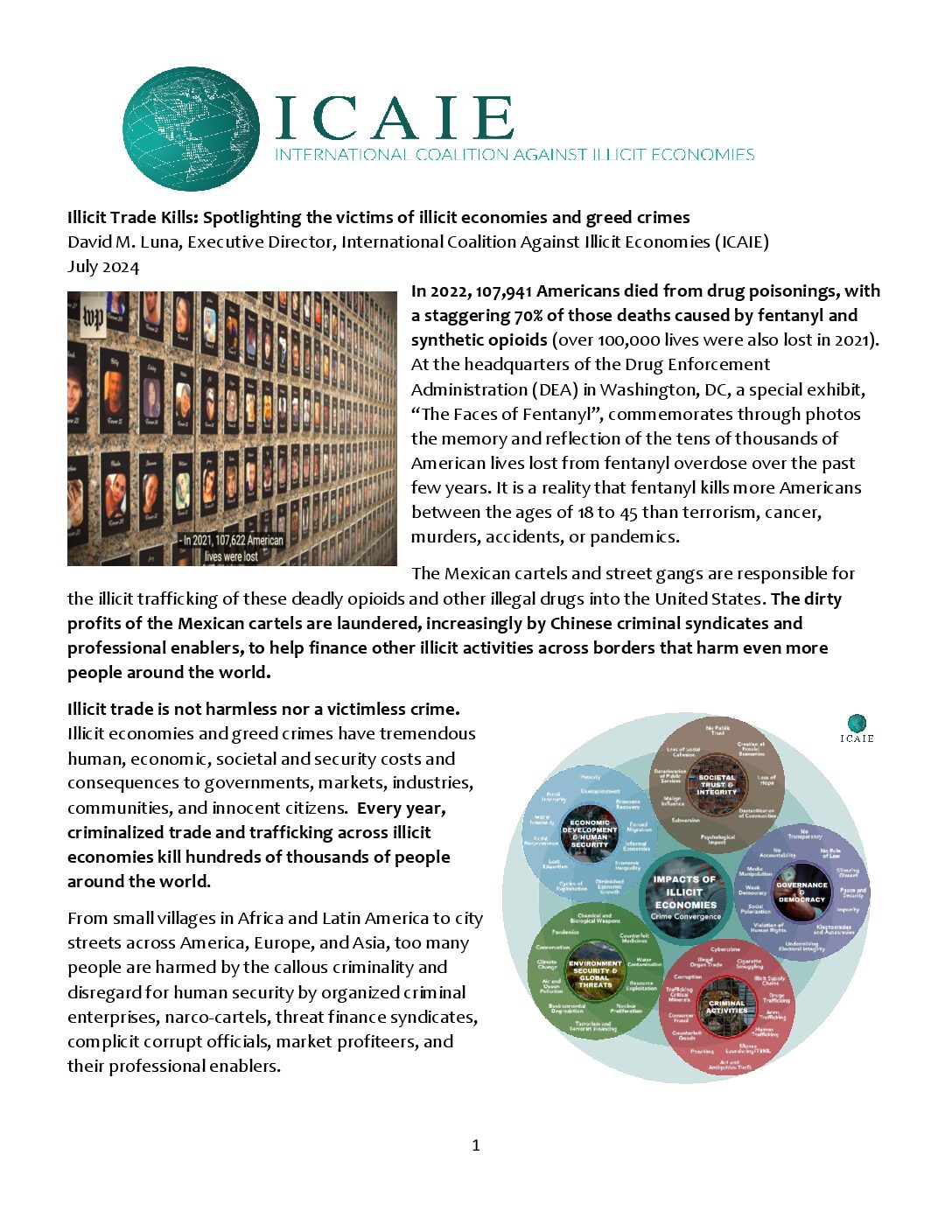Illicit Trade Kills: Spotlighting the victims of illicit economies and greed crimes
Every year, criminalized trade and trafficking across illicit economies kill hundreds of thousands of people around the world.
Illicit trade is not harmless nor a victimless crime. Illicit economies and greed crimes have tremendous human, economic, societal and security costs and consequences to governments, markets, industries, communities, and innocent citizens.
From small villages in Africa and Latin America to city streets across America, Europe, and Asia, too many people are harmed by the callous criminality and disregard for human security by organized criminal enterprises, narco-cartels, threat finance syndicates, complicit corrupt officials, market profiteers, and their professional enablers.
Such bad actors and threat networks are involved in the lucrative criminal activities enabling and fueling the multi-trillion-dollar illicit economies include the smuggling and trafficking of narcotics, opioids, weapons, humans, counterfeit and pirated goods; illegal tobacco and alcohol products; illegally harvested timber, wildlife and fish; pillaged oil, diamonds, gold, natural resources and precious minerals; and other contraband commodities. Such contraband and illicit goods are sold on our main streets, on social media, in online marketplaces and on the dark web every minute of every day.
A Global Ecosystem of Criminality: The United Nations has estimated that the dirty money laundered annually from such criminal activities constitutes up to 5 percent of global gross domestic product, or $4 trillion.
In fact, the dirty monies derived from illicit trade are the lifeblood of today’s bad actors, enabling kleptocrats to loot their countries, criminal organizations to co-opt states and export violence, and terrorist groups to finance their attacks against our societies.
Who is getting hurt by illicit economies and criminalized trade?
Often it is vulnerable populations including the elderly, women and children, the poor, the sick, uninformed consumers, and others who are targeted, exploited, and abused by criminals, counterfeiters, and fraudsters.
Financially-disadvantaged communities in the developing world are particularly hurt as we have witnessed during recent conflicts, pandemic, natural disasters, and the current uneven economic recovery.

